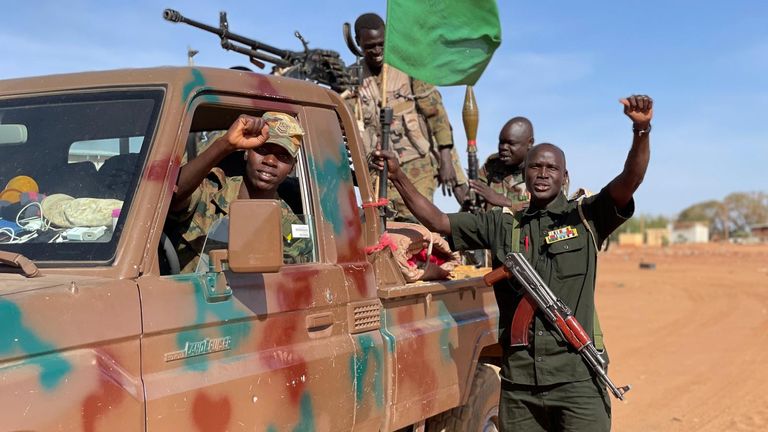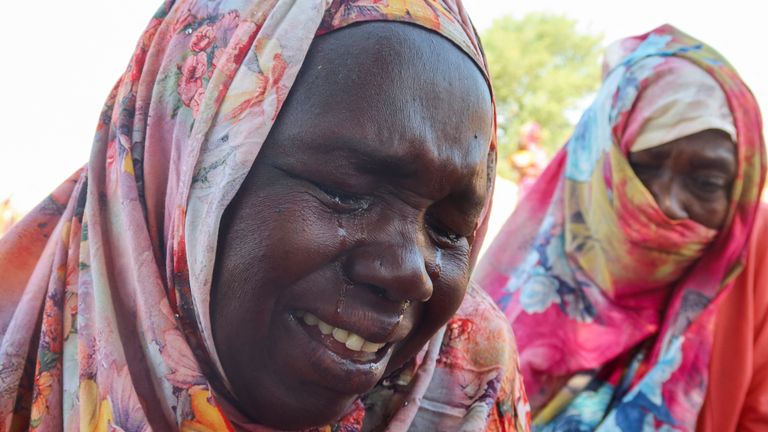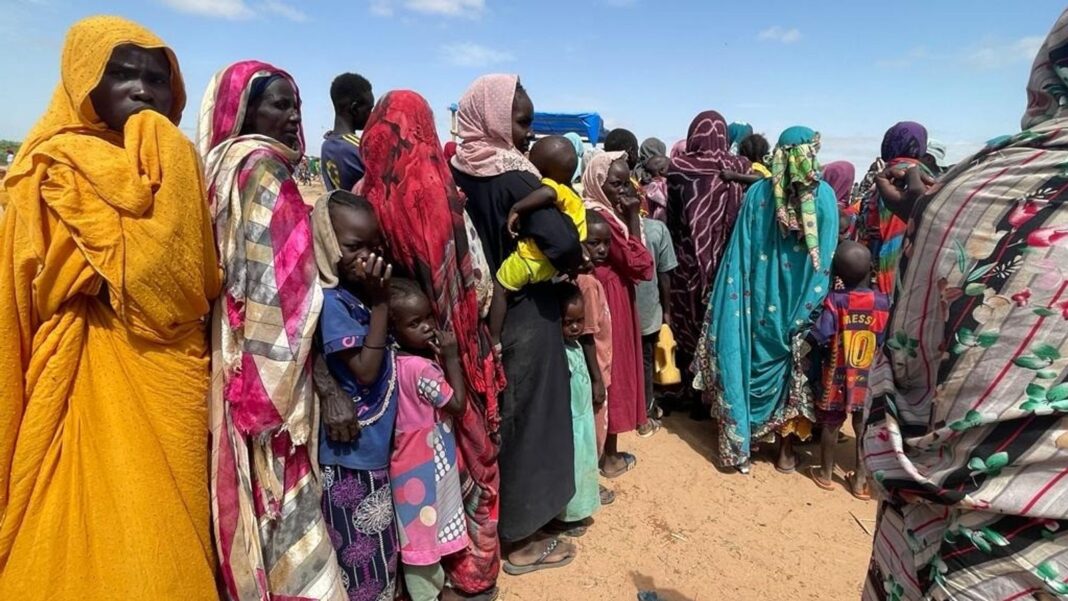The statistics of Sudan’s year of war are staggering.
It is the largest displaced population in the world and the largest population of displaced children in the world.
According to United Nations agencies…
• More than 8.6 million people have been forced out of their homes
• 25 million are in dire need of humanitarian assistance
• 18 million are facing severe hunger, five million of them are at emergency levels
• 3.5 million children under the age of five – every seventh child in Sudan – has acute malnutrition
As the ticker of horrifying statistics steadily updates, there is one measure of brutality that remains as elusive as the loss it quantifies – the death toll.
According to United Nations (UN) agencies, at least 8.5 million Sudanese have been forced out of their homes
Every estimate is markedly low. The UN cites the Armed Conflict Location & Event Data Project figures of 14,790 reported fatalities since the war between the Sudanese Armed Forces (SAF) and paramilitary Rapid Support Forces (RSF) started on this day last year.
But in a report to the UN Security Council, independent experts stated that 10,000 – 15,000 were killed in a city-wide massacre the RSF launched on the West Darfur capital of el Geneina alone.
The health facilities tasked with reporting these fatalities are under extreme pressure.
According to the World Health Organisation (WHO), about 70% of health facilities in conflict-affected states are non-functional or partially functional. As of December 2023, the WHO verified 60 attacks on health care which killed at least 34 people.
Where the army and RSF fight for control in the capital Khartoum, the food basket al Jazira state, North Darfur, South and West Kordofan, people are killed by armed combat and siege conditions.
In RSF territory, they are killed by ethnic violence, rape, pillaging, starvation and preventable illnesses.

Sudanese armed forces at a base taken from the Rapid Support Forces in Omdurman, Karari, last year
Across the country, diseases like cholera, dysentery and malaria are claiming hundreds of lives.
And across the world, our elderly are suffering from heartbreak and illness.
Read more:
UK gives extra support to Sudan as situation ‘catastrophic’
War-torn Sudan’s fighting and humanitarian crisis explained
How do we measure this scale of grief?
All we have are our stories and the memory of those we lost.
Two days into the war, Duaa Mohamed’s young cousin was killed by the violence in Khartoum.
“The imam of the mosque had made an announcement that there was an attack on the area and asked people to retreat to the first floor of their homes because there was shelling in the higher areas,” Duaa shares as the anniversary of her cousin Omnia’s death nears.
“They were making their way downstairs and Omnia, who was always ahead of the crowd, was moving ahead of her family. As soon as she got to the top of the stairwell, a bomb hit that part of the house.”
Duaa recounts the entire neighbourhood showing up to Omnia’s burial – risking their lives to honour her and ensure she was laid to rest as bombs fell around them.
“Her name was Omnia Tajeldeen al Sadig Mohamed. Always smiling and super positive, so curious about the world,” says Duaa.
“She was nine years old and would have been 10 if she lived today.”

The al Maygoma orphans have been forced to flee not once, but twice
For Jumana’s grieving family, the death toll is inconceivably low.
“Our whole life we dealt with cover-ups and underreporting and no accurate toll for anything regarding Sudan. My grandmother was buried in the backyard of her new home,” she texts me from Saudi Arabia.
“How many loved ones were buried in backyards or left unburied? How many people were kidnapped and died with no family to check up on them?”
‘No one knows if they are dead or alive’
Writer Sara Elhassan posts daily online updates and videos about the conflict in Sudan using her Instagram and X account @bsonblast. She is one of the clearest, loudest and most devoted voices to the cause and when she shares, her anguish is measured and collective.
What her followers do not see is the hours spent behind the scenes trying to make contact with family members that are still trapped in some of the worst areas of fighting – all while dedicating 12 hours a day to monitoring general news from across the country.

Women from the city of al Junina (West Darfur) cry after receiving the news about the death of their relatives as they waited for them in Chad in November. Pic: Reuters
“A few hours in the morning are spent making the rounds on those we can contact easily, asking if they’ve heard from the rest,” says Sara.
“The rest of the day is spent obsessively checking WhatsApp to see if our messages went through, if there has been any sign of connectivity.
“Two of my cousins in Khartoum have been missing since the beginning of the war. We lost contact with them since May.
“No one knows if they are dead or alive.”
Hundreds are still missing across the country – unlawfully detained or permanently disappeared in the fog of war.
For Sudan analyst Kholood Khair there is no off switch. She says this is the case for many Sudanese people juggling their daily lives and helping families caught in the crisis back home including her parents who are based in the UK.

Keep up with all the latest news from the UK and around the world by following Sky News
“There was always a sense that maybe if things improve, we can go back. But now, it is not just a question of security but will there be a country at all to return to?” says Kholood.
“A lot of people are in mourning for Sudan – that Sudan has effectively died – which I don’t fully buy into because I think that as long as the people of Sudan believe in a future for their country that country is alive.”
Four women from Khartoum whose stories speak to the capital and the country. All of us are navigating a crisis that has impacted millions in deep and unimaginable ways – both subtle and extreme.
In the face of apathy and global neglect, our collective experience is the only data we can keep and share.







